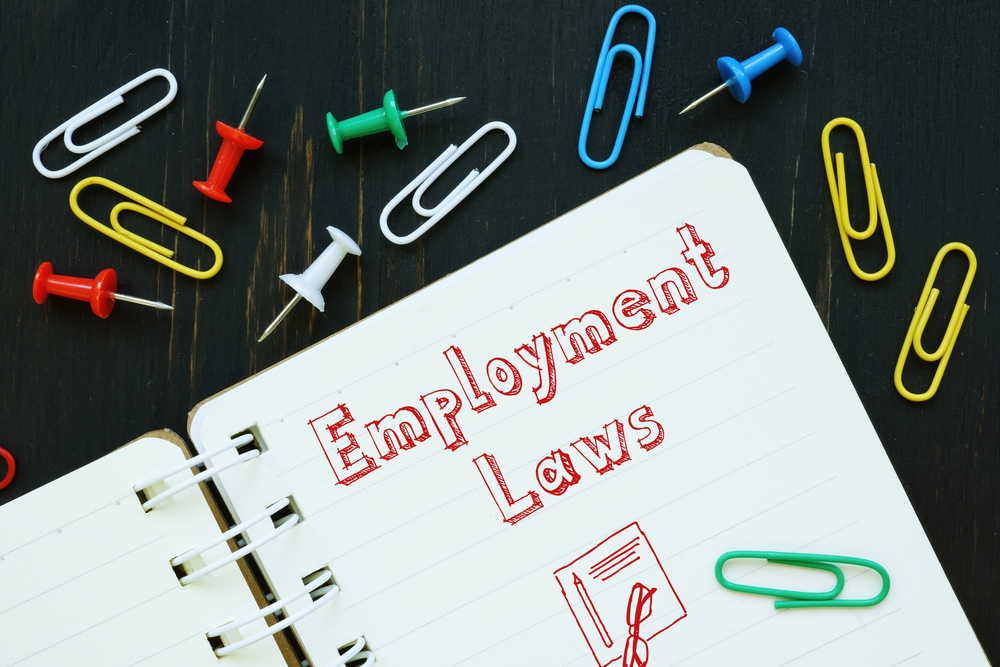We aren’t even quite at the half-year mark, but matters on the regulatory front have been hopping this year! We’ve compiled a mid-year HR compliance roundup, but in an election year, there could be many more changes to come. Some of the issues we’ll address include:
- The Equal Employment Opportunity Commission (EEOC) issued the first updated Harassment Guidance in 30 years and a final rule about The Pregnant Workers Fairness Act,
- The Department of Labor (DOL) issued a final rule on the salary overtime threshold.
- The Federal Trade Commission (FTC) banned all non-competes.
We’ll run through each law and issue, lining to , but because we aren’t attorneys, we’ll turn to several legal experts to help you sort out your organization’s HR compliance obligations. At the end of the post, we’ll offer some articles and commentary on general HR compliance, as well as a few miscellaneous matters related to regulatory topics.
EEOC’s Updated Enforcement Guidance on Harassment
The EEOC issued Guidance to Prevent Harassment in the workplace on April 29. The new guidance took effect immediately. Of the Guidance, the EEOC said:
The new guidance updates, consolidates, and replaces the agency’s five guidance documents issued between 1987 and 1999, and serves as a single, unified agency resource on EEOC-enforced workplace harassment law. It reflects the Commission’s consideration of the robust public input that it received after the guidance was posted for public comment in fall 2023.
Read the EEOC’s press release: EEOC Releases Workplace Guidance to Prevent Harassment and download a copy of the Enforcement Guidance on Harassment in the Workplace. If you find it a bit daunting, these legal experts can help you understand your obligations.
- Littler: EEOC Updates Workplace Harassment Guidance
- Robin Shea, Employment Labor Insider: EEOC Guidance on workplace harassment: What employers need to know
- Porter Hedges: EEOC’s Guidance on Harassment in the Workplace Creates Need for Employers to Update Antiharassment Policies and Investigation Procedures
- Fisher Phillips: New EEOC Workplace Harassment Guidance on LGBTQ+ Workers and More Takes Effect Immediately: 5 Key Takeaways for Employers
- Foley & Lardner: Navigating the Rock & the Hard Place: Conflicting Federal and State Mandates for LGBTQ Employees
Of course, there are several challenges:
- Group of 18 AGs sue EEOC alleging ‘unlawful’ attack on employers with new gender identity guidance
- Challenges to EEOC regs keep on coming
- A Look at the Proliferation of New Legislation Addressing IE&D Across the Country
EEOC: The Pregnant Workers Fairness Act
On April 15, the EEOC issued its final regulation, which will take effect on June 18. The rule applies only to accommodations, while other laws address pregnancy discrimination. See the EEOC’s guidance on What You Should Know About the Pregnant Workers Fairness Act.
- The Employment Law Letter: What Employers Should Know About the EEOC’s Final Regulations on Pregnant Workers Fairness Act
- Littler: EEOC Releases Expansive Final Regulations to Implement the Pregnant Workers Fairness Act
- Robin Shea, Employment Labor Insider: Everything you wanted to know about the Pregnant Workers Fairness Act*
FTC: Noncompete Rule
An estimated 30 million people or 18% of all U.S. workers were subject to noncompetes. Under the final Noncompete Rule, the FTC adopts a comprehensive ban on new noncompetes with all workers, including senior executives.
For existing noncompetes, the final rule adopts a different approach for senior executives than for other workers. For senior executives, existing noncompetes can remain in force. Existing noncompetes with workers other than senior executives are not enforceable after the effective date. See these resources from the FTC for further guidance: Fact Sheet on the FTC’s Noncompete Rulemaking and Noncompete Clause Rule: A Compliance Guide for Businesses and Small Entities
- Jon Hyman, Ohio Employer Law Blog: FTC bans all non-competes … Now what?
- Harris Beach: Summary of FTC’s Non-Compete Prohibition and Best Practices For The Business World
- HR Daily Advisor: The End of Non-Competes? What HR Professionals Need to Know About the FTC’s Latest Ruling
- Littler: FTC Issues Final Rule Effectively Banning Workplace Non-Compete Agreements
- DRI: Non-Compete Clauses and Professional Liability
DOL: Overtime Thresholds
On April 23, 2024, the DOL announced a Final Rule: Restoring and Extending Overtime Protections, which will take effect on July 1, 2024. The final rule updates and revises the regulations issued under the Fair Labor Standards Act implementing the exemption from minimum wage and overtime pay requirements for executive, administrative, and professional employees. Revisions include increases to the standard salary level and the highly compensated employee total annual compensation threshold, and a mechanism that provides for the timely and efficient updating of these earnings thresholds to reflect current earnings data. See: Fact Sheet #17A: Exemption for Executive, Administrative, Professional, Computer & Outside Sales Employees Under the Fair Labor Standards Act (FLSA)
- Mayer Brown: US Department of Labor Substantially Expands Eligibility for Overtime Pay
- HR Dive: DOL will raise overtime salary threshold to $44K in July, $59K next year
- HR Dive: DOL’s ‘unprecedented,’ two-pronged overtime rule adds new HR wrinkles
- Littler: Department of Labor Publishes Final Rule to Update the Salary Level for Overtime Eligibility
Additional HR Compliance Matters
- Americans with Disabilities Act: Jeff Nowak at FMLA Insights posted the American Bar Association’s Summary of 2023 FMLA Court Decisions
- Jon Hyman of Ohio’s Employer Law Blog offers a sneak peek into President Biden’s proposed federal budget for FY 2025, which contains significant funding that would impact the workplace.
- With so many new rules, where to start?
Fisher Phillips offers 12 Essential Items on Your May To-Do List
Bradley Arant Boult Cummings: Spring Cleaning: Is Your “Employment House” in Order?
HR Bartender blogs about Labor Law Postings: 4 Key Elements of an Effective Strategy
Remember!
With ESI EAP, HR Managers can access Counselors and Senior Professionals in Human Resources (SPHR) for complex employee issues requiring specific HR expertise. We also offer compliance training and an online Self-Help Supervisor Resource Center.

